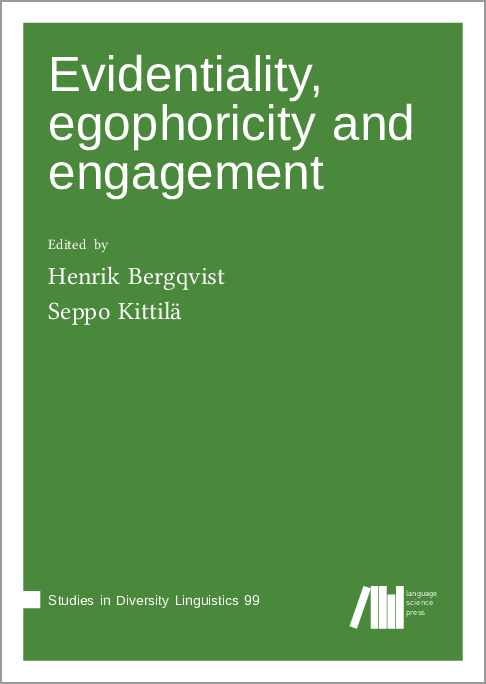We log anonymous usage statistics. Please read the privacy information for details.
Evidentiality, egophoricity and engagement
Synopsis
The expression of knowledge in language (i.e. epistemicity) consists of a number of distinct notions and proposed categories that are only partly related to a well explored forms like epistemic modals. The aim of the volume is therefore to contribute to the ongoing exploration of epistemic marking systems in lesser-documented languages from the Americas, Papua New Guinea, and Central Asia from the perspective of language description and cross-linguistic comparison. As the title of the volume suggests, part of this exploration consists of situating already established notions (such as evidentiality) with the diversity of systems found in individual languages. Epistemic forms that feature in the present volume include ones that signal how speakers claim knowledge based on perceptual-cognitive access (evidentials); the speaker’s involvement as a basis for claiming epistemic authority (egophorics); the distribution of knowledge between the speech-participants where the speaker signals assumptions about the addressee’s knowledge of an event as either shared, or non-shared with the speaker (engagement marking).
Chapters
-
Epistemic perspectivesevidentiality. egophoricity, and engagement
-
Epistemic primacy, Common Ground management and the epistemic perspective domain
-
Egophoricity, engagement and the centring of subjectivity
-
An egophoric analysis of Dhivehi verbal morphology
-
Emerging epistemic marking in Indo-Aryan Palula
-
On the existence of egophoricity across clause types in Totoró Namtrik
-
Interpersonal Alignments and Epistemic Marking in Kalapalo (Sourthern Carib, Brazil)
-
Epistemic uses of the "pretérito pluscuamperfecto" in La Paz Spanish
-
Same but differenton the relationship between egophoricity and evidentiality
Reviews
-
Review on LinguistList
by Sune Gregersen
published June 15, 2021
It is a privilege to be allowed to review such an excellent and well-edited volume. The individual chapters in “Evidentiality, egophoricity, and engagement” all clearly relate to the central theme of the book, and several of them are outstanding contributions in their own right which deserve to be read by a wide linguistic audience. In addition to this, most of the chapters contribute to the description of lesser-known languages and dialects, some of them either at risk or severely endangered (see e.g. Grzech, p. 25, and Gonzales Castaño, p. 166).[...]




